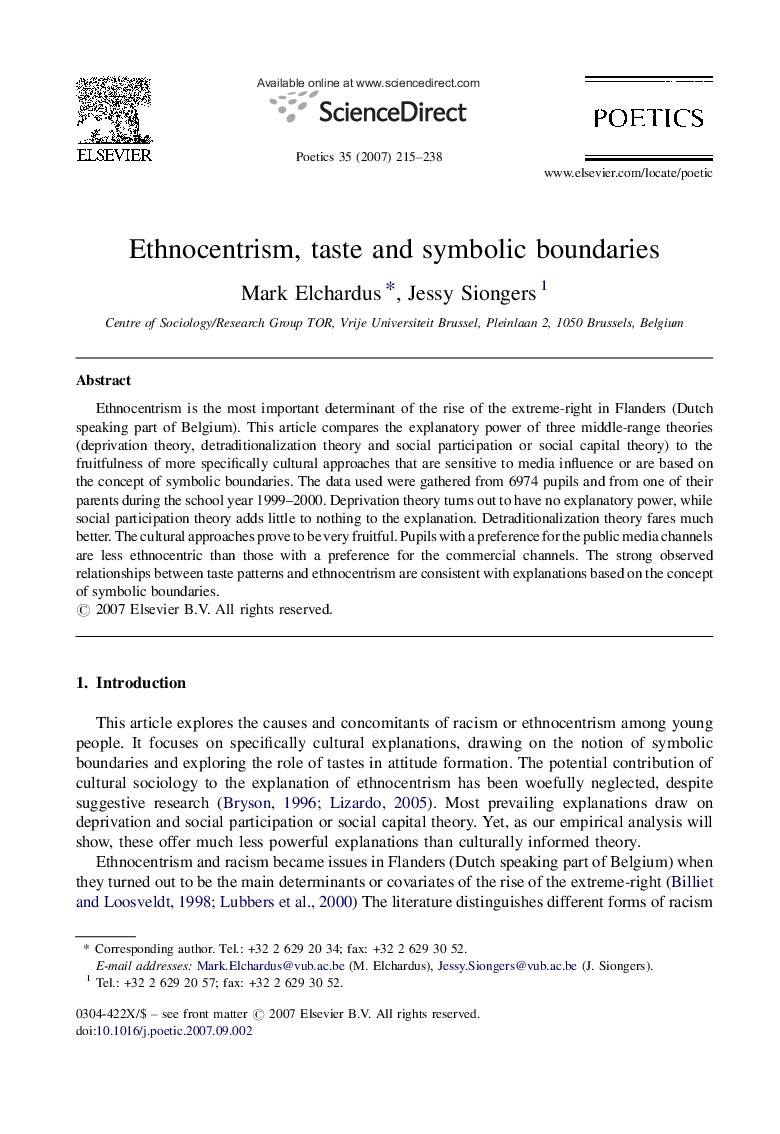| Article ID | Journal | Published Year | Pages | File Type |
|---|---|---|---|---|
| 1128640 | Poetics | 2007 | 24 Pages |
Ethnocentrism is the most important determinant of the rise of the extreme-right in Flanders (Dutch speaking part of Belgium). This article compares the explanatory power of three middle-range theories (deprivation theory, detraditionalization theory and social participation or social capital theory) to the fruitfulness of more specifically cultural approaches that are sensitive to media influence or are based on the concept of symbolic boundaries. The data used were gathered from 6974 pupils and from one of their parents during the school year 1999–2000. Deprivation theory turns out to have no explanatory power, while social participation theory adds little to nothing to the explanation. Detraditionalization theory fares much better. The cultural approaches prove to be very fruitful. Pupils with a preference for the public media channels are less ethnocentric than those with a preference for the commercial channels. The strong observed relationships between taste patterns and ethnocentrism are consistent with explanations based on the concept of symbolic boundaries.
